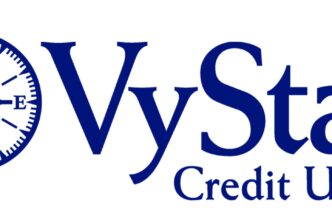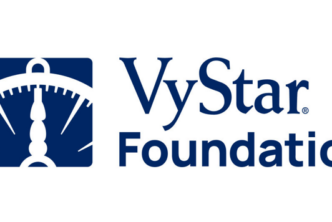The LSCU hosted a COVID-19-focus webinar yesterday, featuring a discussion with NCUA Regional Director Keith Morton. The objective was to clarify facts and to allay any concerns credit unions have related to regulators and actions they are taking to help members during this unprecedented pandemic.
Morton’s presentation explained actions taken so far, including allowing credit unions an additional 30 days to file call reports, making May 26 the new deadline. Morton also explained that examiners would be conducting exams virtually through May 31.
The regional director also provided statistics for the 160 credit union professionals on the call:
• Operational Status – 95% of credit unions are offering full or partial service to their members.
• Lobby Service – 66% report their lobbies are closed.
• Member Communication – 90% are notifying members of service changes via the web.
• Cash Access – 89% have adequate cash.
• Liquidity Planning – 90% have not had to increase borrowings or implement their Contingency Funding Plan.
• Membership Impact – 24% indicate membership has an elevated exposure to an affected industry.
During the question-and-answer portion of the webinar, credit union professionals asked if all examiners were aware of the plan for virtual examinations because many credit unions had been contacted about in-person reviews. Morton explained that examiners had just received formal notification April 21 at 4 p.m., meaning they might have been scheduling in-person before the new plan had been given to them.
He provided pertinent information about exams, including:
LTCU –Offsite Examination and Supervision Approach
–Priority 1 -Credit Unions Experiencing Problems
• Field staff will prioritize supervision efforts for those credit unions experiencing significant financial or operational problems.
–Priority 2 -Contacting All Credit Unions
• Examiners will contact each credit union periodically to discuss the institution’s operational and financial status, including any associated challenges, and whether any assistance is needed, commencing March 30.
–Priority 3 -Conduct Examinations Offsite
• Conducting offsite supervisory work provided credit unions are not occupied addressing the impact of COVID-19 and are willing and able to provide requested information. Examiners will not require a credit union to provide information to conduct offsite examination work.
In response to issues about the scrutiny credit unions may face regarding the effect on their operations after the virus, Morton said he is available for any support he could provide.
“My posture has always been to save every credit union I possibly can,” Morton said. “It is not our intent to cause any credit union’s demise or to precipitate that.”
In looking at the effect of COVID-19 on capital and liquidity, Morton said his department has a responsibility to assess the risk, but, “Credit unions on the line today have my word that I’m going to work with you. I’m willing to work with credit unions and roll up our sleeves and do everything we can to position credit unions for success.”
He also offered to answer questions offline and wants to be a resource for credit unions with questions and concerns.
In response to questions about CDFI, Morton provided details after the call:
Overhead expenses, such as supplies, are allowable but the NCUA does not offer any grants for small/LID credit unions to cover overhead expenses for staff salaries. If the credit union is a CDFI, the CDFI Fund’s technical and financial assistance grants may be used to cover staff salaries and other overhead expenses such as advertisements and supplies if the expenses are directly related to building the capacity of the CDFI.
If credit unions do not hold the US Treasury’s CDFI Certification, they can see if they qualify to use the CDFI streamlined certification process. Currently, an intake round is open and will close May 31. Credit unions should check if the qualify under our streamlined process first.
If credit unions do not qualify through NCUA, they will then need to go through the US Treasury’s CDFI Fund.
Another credit union asked this question: Will examiners be requesting proof of hardship as credit unions take actions to support members in need? Morton said they should not: “Credit unions are in the business to take risks, and it is their decision to take those risks.”
He said taking reasonable caution to extend forbearance to individuals who need it is taking action to manage risk.
Another question was regarding if credit unions were able to take advantage, and the response from Morton and from LSCU President Jared Ross was that at this time, credit unions cannot take out Paycheck Protection Program loans.
Jared explained that LSCU advocacy teams will continue to push Congress and the SBA on that issue going forward.
One question addressed if credit unions could take a member’s stimulus funds to offset debt, and the consensus was that while it is legal to do so, the negative public relations banks have faced in doing that make it inadvisable in light of potential ramifications.
Morton again urged credit unions to contact him with concerns at 512-342-5601 or ckmorton@ncua.gov.
Webinar update:
Online registration is open for today’s 24 webinar discussing programs and initiatives the National Credit Union Administration’s Office of Credit Union Resources and Expansion has planned for 2019.
The webinar, “What’s Happening in CURE for 2019,” is scheduled to begin at 2 p.m. ET. Martha Ninichuk and JeanMarie Komyathy, director and deputy director of the Office of Credit Union Resources and Expansion, will discuss topics including:
• Programs and initiatives for Minority Depository Institutions;
• The credit union chartering process;
• The upcoming grant round for low-income credit unions;
• CURE’s training programs schedule; and
• New upgrades for the agency’s Learning Management Service.
Register here.





